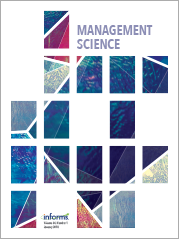Abstract
One may reasonably think that cultural homophily, defined as the tendency to associate with others of similar culture, affects collaboration in multinational teams in general but not in superstar teams of professionals at the top of their industry.  The analysis of an exhaustive data set on the passes made by professional European football players in the top five men’s leagues reveals that on the contrary, cultural homophily is persistent, pervasive, and consequential, even in superstar multinational teams of very-high-skill individuals with clear common objectives and aligned incentives who are involved in interactive tasks that are well defined and not particularly culture intensive.
The analysis of an exhaustive data set on the passes made by professional European football players in the top five men’s leagues reveals that on the contrary, cultural homophily is persistent, pervasive, and consequential, even in superstar multinational teams of very-high-skill individuals with clear common objectives and aligned incentives who are involved in interactive tasks that are well defined and not particularly culture intensive.
Keywords: organizations • teams • culture • homophily • diversity • language • globalization • big data • panel data • sport



